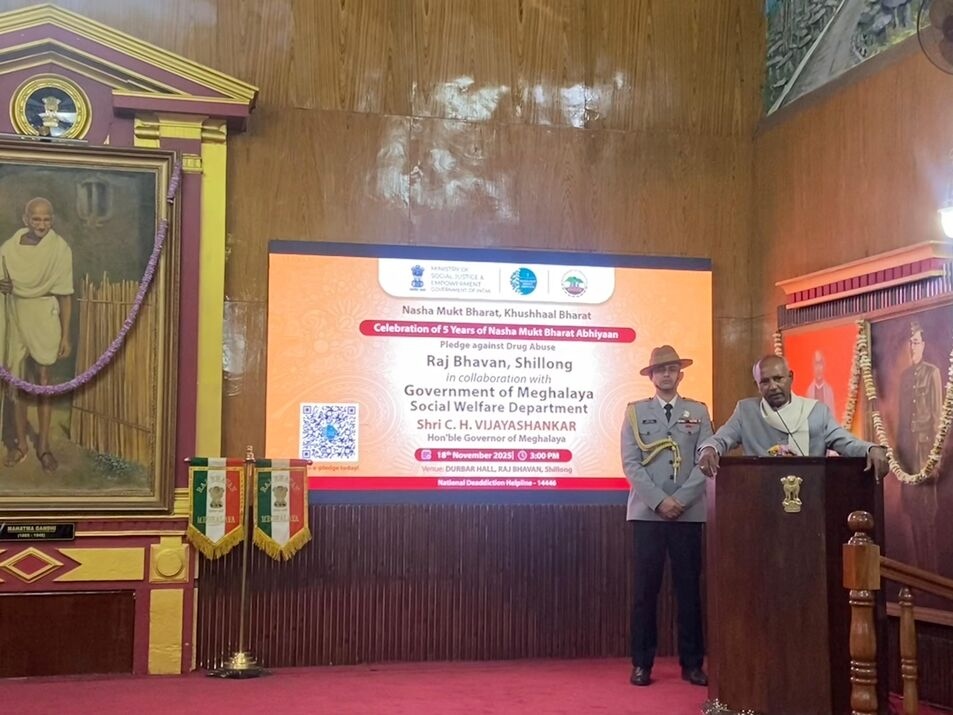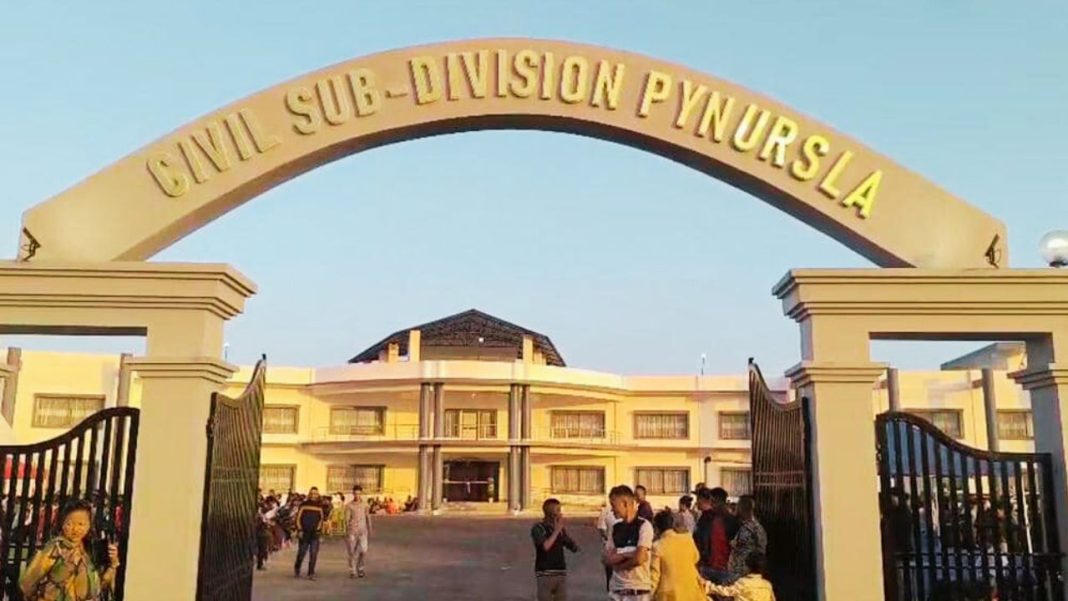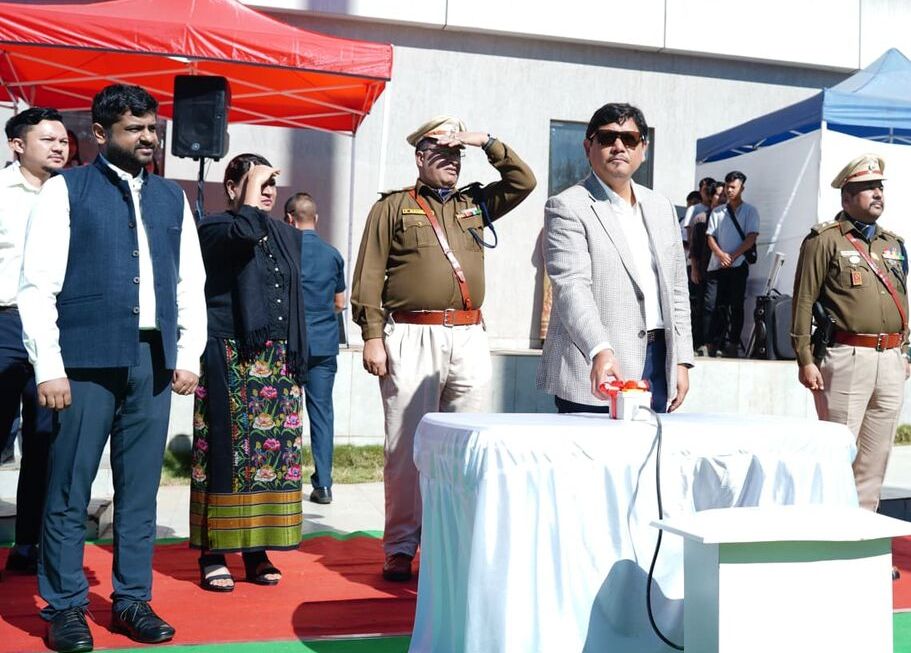Shillong, Nov 18: Meghalaya Governor CH Vijayashankar has highlighted five main social challenges that require immediate and coordinated attention from the Social Welfare Department for documentation and mass awareness.
The governor was addressing a special event commemorating five years of the Nasha Mukt Bharat Abhiyan at the Raj Bhavan in collaboration with the Social Welfare department on Tuesday.
“There are five main challenges – Drugs, HIV or AIDS, TB, Cancer and teenage pregnancy.” He called upon the State to come together as a society and work collectively towards achieving a Nasha Mukt Bharat.
He emphasized the necessity of a continuous mass awareness campaign implemented robustly at the school, college and community levels to safeguard the State’s youth.
The Governor underscored the critical need for sustained public awareness and deep community participation to effectively curb substance abuse. He took the opportunity to commend the commendable role played by various stakeholders, including government agencies, educational institutions, NGOs, and youth volunteers, in ensuring the campaign reached the grassroots level.
The Governor further reinforced the commitment to the mission by administering a solemn anti-drug pledge to all participants. The pledge underscored the role of the youth as the energy of the nation and stressed that change must begin with oneself.
Officials from the Social Welfare Department subsequently presented a comprehensive overview of the significant progress achieved under the campaign over the past half-decade. Achievements cited include the expansion of counseling services, intensified outreach programs targeting vulnerable communities, and the strengthening of rehabilitation initiatives.
Notably, the campaign has successfully sensitized and educated more than 14 lakh people in Meghalaya and covered over 1,923 educational institutions through diverse outreach activities.
The programme, which was also attended by Paul Lyngdoh, Adviser to the Social Welfare Department, along with other senior department officials, civil society representatives, educational leaders, and youth groups, concluded with a renewed and unified call for action.




